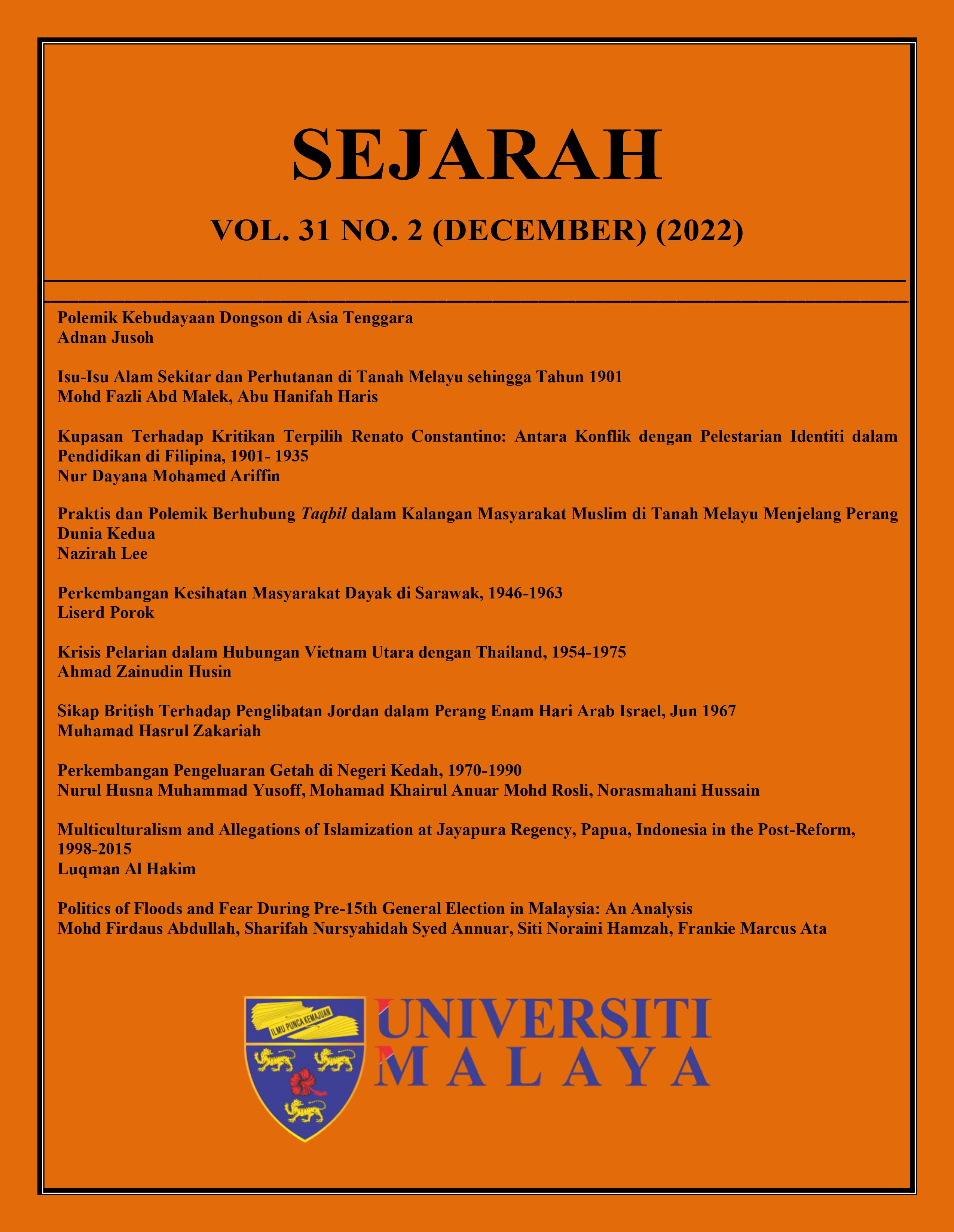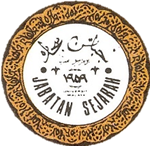Praktis dan Polemik Berhubung Taqbil dalam Kalangan Masyarakat Muslim di Tanah Melayu Menjelang Perang Dunia Kedua
Practice and Polemic Regarding Taqbil among Muslims in the Malay States on the Eve of Second World War
DOI:
https://doi.org/10.22452/sejarah.vol31no2.4Keywords:
Taqbil, Malays, Saiyyid Alawiyyin, Non-Saiyyid/Pro Irshadi, Malay StatesAbstract
Taqbil, a customary practise in the Malay States, is exercise by non-saiyyids (Malay and Pro-Irshadi) to kiss a saiyyid's hand in order to show respect or obtain the latter's blessing. The chain of events that unfolded in the 1930s until 1941 altered Muslims' perceptions regarding taqbil. This paper attempts to analyze the debate surrounding the practise of taqbil in the period under study. Some began to question the practise of taqbil on the basis of equality and social status principles, claiming that taqbil is incompatible with Islamic teaching. Thus, the discussion also illustrates criticism raised by non-saiyyids especially the Malays against the saiyyid Alawiyyin. Arguments presented in this paper are derived from secondary and primary sources such as files, documents, and newspapers published within the period of study. Those were analysed based on historical research methodology. Findings suggest that the conflict and bickering regarding the practise of taqbil intensified towards the end of the 1930s and the early 1940s. In conclusion, on the eve of the Second World War, Muslims were divided into groups based on their perceptions toward the practise of taqbil and those involved refuse to budge even an inch citing religion or nationalism as the biggest reason for their dogged determination.
Received: 28 September 2022
Reviewed: 27 November 2022
Accepted: 6 Disember 2022


